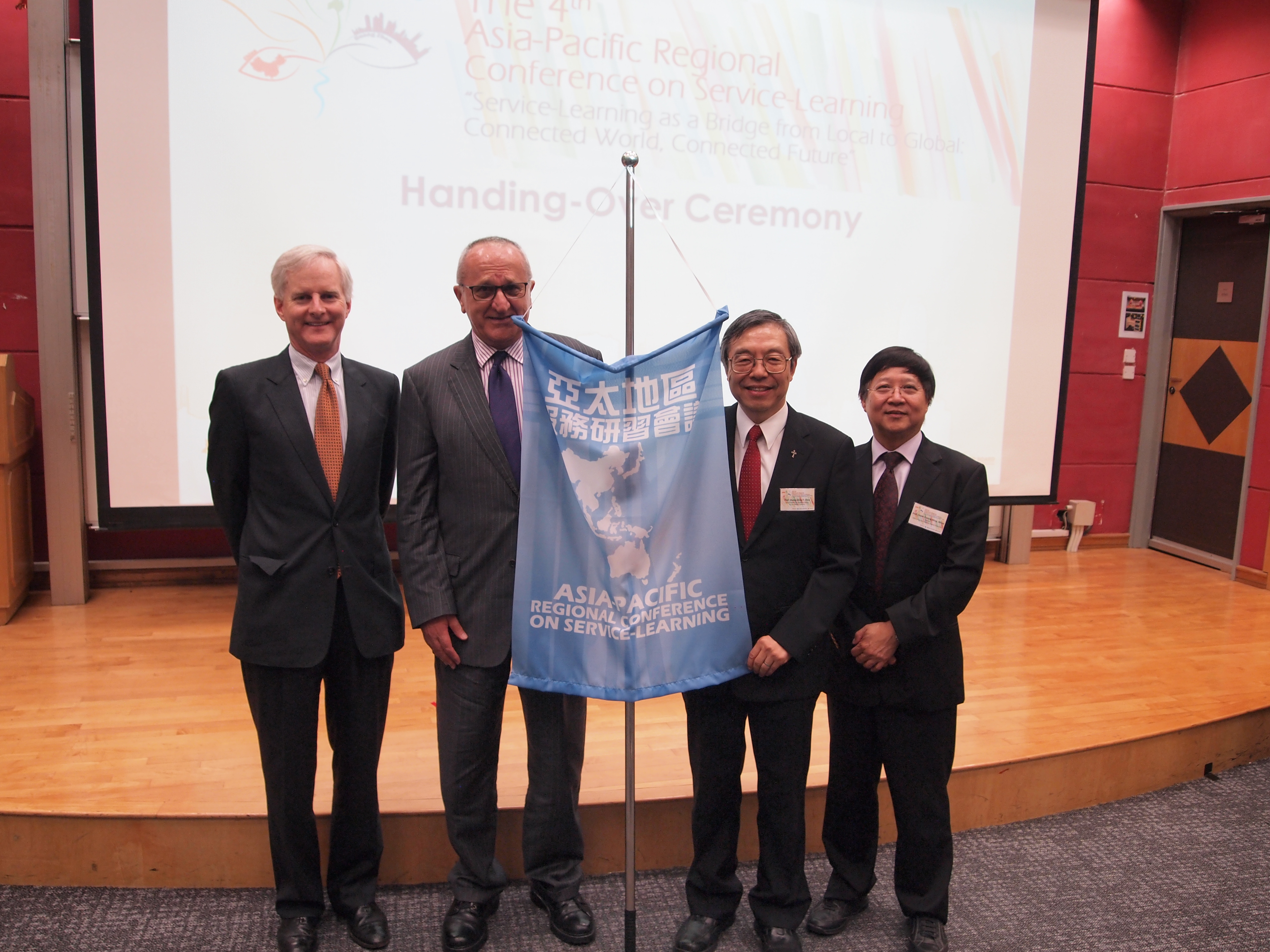Reflection on the effect of a service-learning program on Taiwanese secondary school students in their metalearning capacity
Location
MD202, Paul Cardinal Shen Medical Building, Fu Jen University
Start Date
29-5-2015 3:00 PM
End Date
29-5-2015 4:10 PM
Description
This is an action-based study, aiming to investigate how Taiwanese secondary school students' metalearning capacity may be enhanced. In order to develop students into lifelong and self-directed learners, it is valuable to promote their awareness of their learning processes in different contexts and encourage them to take control over their strategy selection and deployment (Biggs, 1985) . The principles behind the development and implementation of this service-learning program have been set up according to a review of literature, drawing on both Confucian heritage traditions and We stern educational propositions.
The program was a one-year EFL (English as a Foreign Language) elective course in a Taiwanese secondary school. At the beginning of the first semester, there were orientations that introduced the students to different learning strategies. Then, the teacher modeled ho w to set a realistic goal, make a plan, evaluate progress and performance, etc. The students formed different groups to practice teaching in class and at church. Also included in the term-time activities were discussions and peers' or teacher's feedback. Throughout the process, every student had to keep a reflective journal and answer guiding questions related to the topic of each lesson or task. In summer vacation, the students held an English camp for underprivileged children in a remote county in Taiwan. They took the role as teachers and t aught English songs, stories or games to the children.
Fifteen 10th grade students took full part in the program during the school year of 2012-2013, and they each wrote seven journal entries over the course. In addition, a semi-structured interview with the students was conducted after the summer camp. Qualitative content analysis was adopted to examine both the journal entries and the interview transcripts. It can be inferred from the data (1) the process of comparison (between the students themselves and someone else) stimulates the students to reflect on their knowledge about learning, that (2) the dynamics of taking the role as a teacher encouraged the students to exert control over their learning processes, and that (3) the greater good, a dedication to serve underprivileged children, drove the students to question the status quo.
Recommended Citation
Lin, S.-w., & Chang, C.-H. (2015, May). Reflection on the effect of a service-learning program on Taiwanese secondary school students in their metalearning capacity. Paper presented at the 5th Asia-Pacific Regional Conference on Service-Learning: Love Journey: Community Engagement through Service-Learning, Fu Jen Catholic University, Taiwan.
Reflection on the effect of a service-learning program on Taiwanese secondary school students in their metalearning capacity
MD202, Paul Cardinal Shen Medical Building, Fu Jen University
This is an action-based study, aiming to investigate how Taiwanese secondary school students' metalearning capacity may be enhanced. In order to develop students into lifelong and self-directed learners, it is valuable to promote their awareness of their learning processes in different contexts and encourage them to take control over their strategy selection and deployment (Biggs, 1985) . The principles behind the development and implementation of this service-learning program have been set up according to a review of literature, drawing on both Confucian heritage traditions and We stern educational propositions.
The program was a one-year EFL (English as a Foreign Language) elective course in a Taiwanese secondary school. At the beginning of the first semester, there were orientations that introduced the students to different learning strategies. Then, the teacher modeled ho w to set a realistic goal, make a plan, evaluate progress and performance, etc. The students formed different groups to practice teaching in class and at church. Also included in the term-time activities were discussions and peers' or teacher's feedback. Throughout the process, every student had to keep a reflective journal and answer guiding questions related to the topic of each lesson or task. In summer vacation, the students held an English camp for underprivileged children in a remote county in Taiwan. They took the role as teachers and t aught English songs, stories or games to the children.
Fifteen 10th grade students took full part in the program during the school year of 2012-2013, and they each wrote seven journal entries over the course. In addition, a semi-structured interview with the students was conducted after the summer camp. Qualitative content analysis was adopted to examine both the journal entries and the interview transcripts. It can be inferred from the data (1) the process of comparison (between the students themselves and someone else) stimulates the students to reflect on their knowledge about learning, that (2) the dynamics of taking the role as a teacher encouraged the students to exert control over their learning processes, and that (3) the greater good, a dedication to serve underprivileged children, drove the students to question the status quo.
